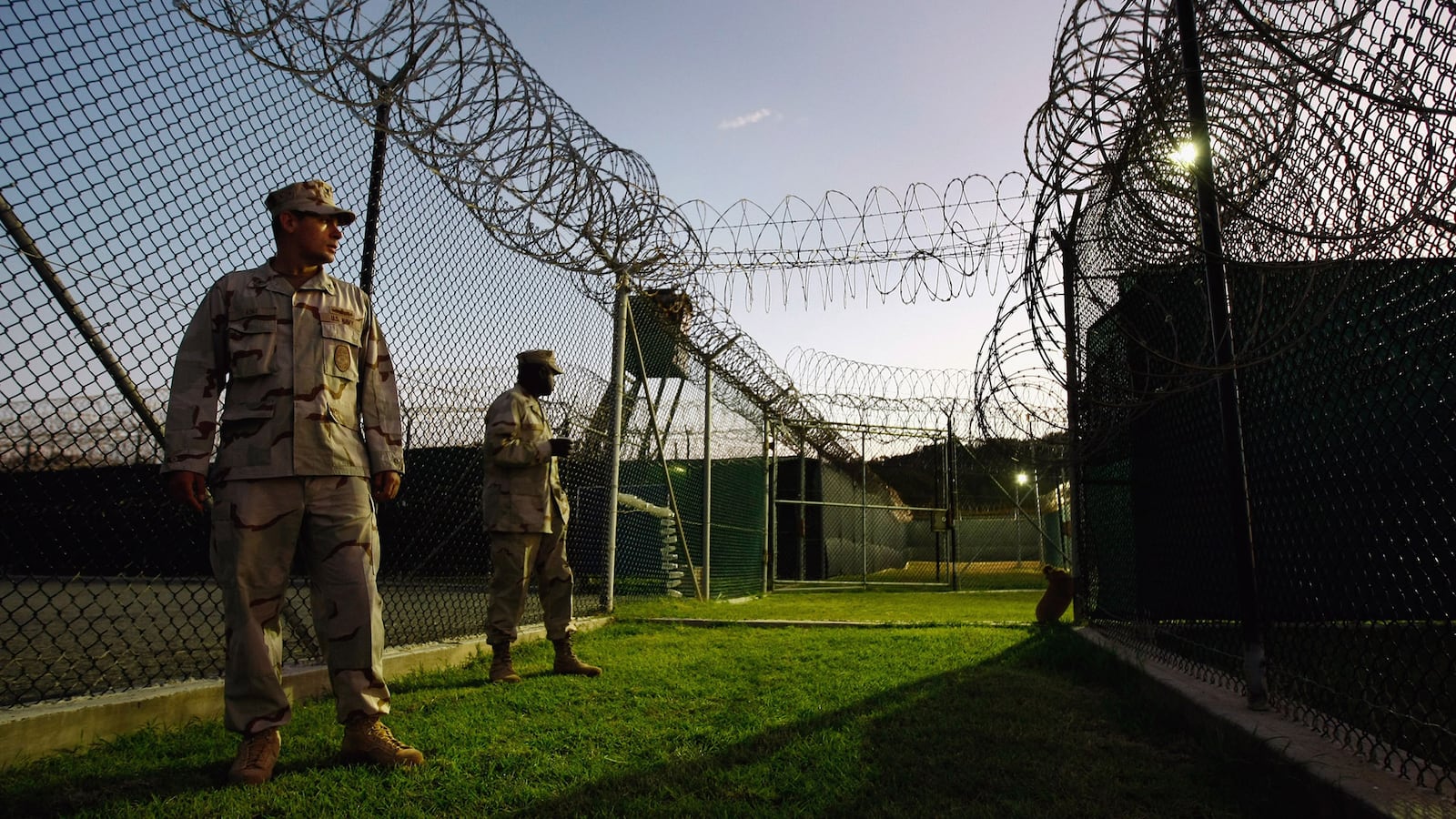An attorney who was arrested by the U.S. Marshals Service and forced to testify in a Guantanamo Bay terror proceeding is ready to take the government to the court. On Monday, Stephen Gill will take the first legal step toward suing the U.S. Marshals and the Department of Defense for $1.375 million, The Daily Beast has learned.
At issue is a question that could impact every American citizen: Do U.S. military commissions have the power to arrest Americans without showing them a warrant, fly them hundreds of miles away from their homes, lock them up without access to legal counsel, and force them to testify? The administrative claim—which is the first step to a lawsuit against the federal government—is being filed by Mark Zaid, a national security attorney who sometimes assists The Daily Beast with Freedom of Information Act litigation.
Gill was formerly an attorney in the Pentagon’s legal office, and was called to testify before the Guantanamo military tribunal as part of a pre-trial hearing related to Pentagon lawyers’ misconduct. It could have been simple. According to Gill’s claim, reviewed exclusively by The Daily Beast, Gill wanted to testify, and asked to do so over a video conferencing system in Newport, Rhode Island, which was close to his home in Marshfield, Massachusetts. He ended up traveling to Alexandria, Virginia, to testify, and then returning home. After that first testimony, there was some dispute as to where Gill would go to answer more questions.
On Oct. 13, 2016, the military commission subpoenaed him to travel to Virginia once more to testify in an Oct. 17 hearing. On Oct. 16, Gill moved to quash the subpoena. He didn’t hear back, according to the claim, so he didn’t show up to testify.
Then things went off the rails. At 1 p.m. on Oct. 18, Gill opened his front door to 15 U.S. Marshals in riot gear, along with five local police officers. The officers wielded shields, and pointed handguns and military-grade assault rifles at him. Half a dozen black SUVs and police cars filled his driveway and the street in front of his house.
The officers ordered Gill to get on his knees and put his hands up. Terrified, Gill complied. The officers put him in handcuffs, waist shackles, and ankle shackles. Then they searched his home.
Without letting him bring his cellphone, wallet, and medication, the officers loaded him into one of their vehicles and drove him to the federal courthouse in Boston, where they put him in a basement holding cell.
Gill never saw the warrant for his arrest, according to the claim he’s set to file.
After at least an hour, the officers flew Gill down to Alexandria, Virginia, where they put him in a detention center. He spent the night there, in a cold cell with the lights on.
At midnight, he got the first food he had received since his arrest: a few pieces of bologna on white bread.
The next morning, they moved him to a secure conference room and unshackled him just moments before he was supposed to testify. Gill said he couldn’t testify competently because of the ordeal he had been through, including that he hadn’t had access to his medication. The presiding judge, Vance Spath, made him testify anyway and wouldn’t let him talk to a lawyer.
After more than 24 hours, the military officials put Gill on a plane back to Boston.
In his administrative claim, Gill holds that his ordeal was unlawful, that it caused him extraordinary emotional distress, and that it hurt his legal practice.
Spokespersons for the Justice Department and Defense Department didn’t respond to requests for comment. Zaid said his client will seek $1.375 million in damages, so it’s likely we’ll hear the government’s side of the story pretty soon.





